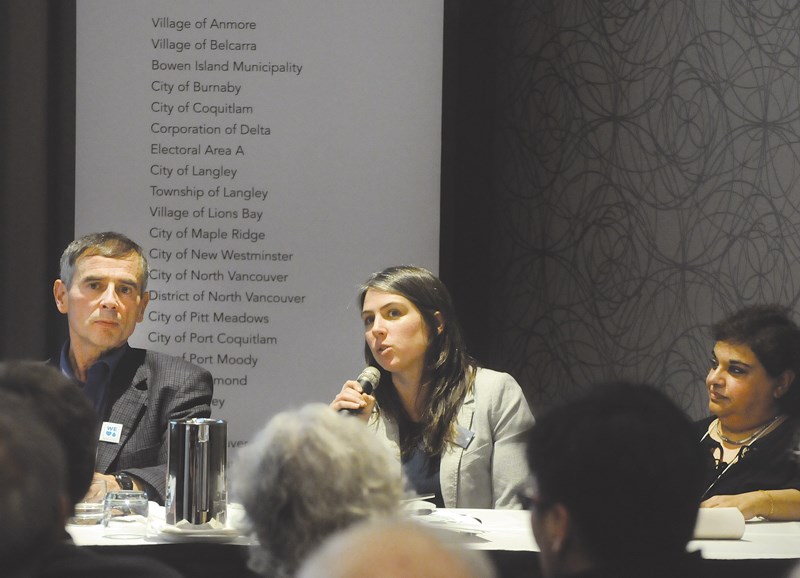Metro Vancouver is tweaking its summer water conservation plan to include fewer mornings of lawn sprinkling, restrictions on sports field watering and restrictions on commercial car washes during summer droughts.
The proposed changes were among those presented to the public at a meeting in North Vancouver Jan. 25.
The region began reviewing its water shortage response plan following the four-month-long summer drought of 2015 that left water managers scrambling as reservoir levels dipped.
The biggest changes in the plans are starting sprinkling restrictions on May 1 each year instead of May 15 and restricting lawn sprinkling to two mornings a week, rather than the three currently allowed. Starting watering restrictions earlier will conserve water in years where there is a warm, dry spring, said Stan Woods, a senior engineer at Metro Vancouver.
While the current regulations provide a total of 15 possible watering hours each week, healthy lawns only require one hour of watering weekly, a Metro staff report notes.
Many lawns in the region are currently being overwatered, according to the report – when automatic in-ground sprinkling systems are set to water on all three days, for instance, regardless of whether the lawn needs it. That use is expected to grow as in-ground watering systems increase.
Proposed regulations would also bring in restrictions on watering of public and school sports fields to between the hours of 7 p.m. and 9 a.m, when water is less likely to evaporate, according to the report. It will also set a good example for the public, the report’s author added. Currently there are no restrictions on watering sports fields.
If the region is hit with a hot, dry summer and has to step up watering restrictions, to Stage 3, only commercial car washes that recirculate water or use hand-held wands would be allowed.
In response to questions from the audience, water managers at the meeting said they focus on lawn and gardening sprinkling because it accounts for large amounts of additional water use in summer months and it’s an area where it’s possible to make changes.
West Vancouver doesn’t hire additional staff to enforce sprinkling regulations, said Emily Willobee of that municipality's engineering department, but it tracks water use through its residential water meters and sends reminders to those using large amounts of water.
“In the vast majority of cases, people just don’t know,” she said. “They just don’t understand how much water they use when they water the garden or water the lawns.”
Staff also talk to irrigation companies about setting up in-ground sprinkling systems correctly, she said.
“Most of the people who were given tickets have in-ground systems,” added Femida Hudda-Musani, water co-ordinator at the District of North Vancouver. “They’re not programmed right.”
Installing water meters was also on the minds of attendees. Darrell Mussatto, City of North Vancouver mayor and chairman of Metro’s utilities committee, said it’s a complex issue. Water meters are expensive, he said – including costs of installing, reading the meter and billing residents. While they could delay the need for much larger infrastructure projects like a deeper water intake system on the Coquitlam reservoir, they are a hard sell, politically.
“It’s going to be a tough message that you have to pay more for less water,” he said.
North Vancouver resident Corrie Kost said he thinks water is already too expensive and the regulations vague and ineffective.
Subsidized rain barrel programs are “ludicrously ineffective,” he added.
Those who want to water their gardens outside of regulations will continue to do so, he said “at night, in the back. Nobody’s going to find out, unless we snitch on our neighbours.”
Mussatto replied, “It may shock you but there’s some of those comments I agree with.”



